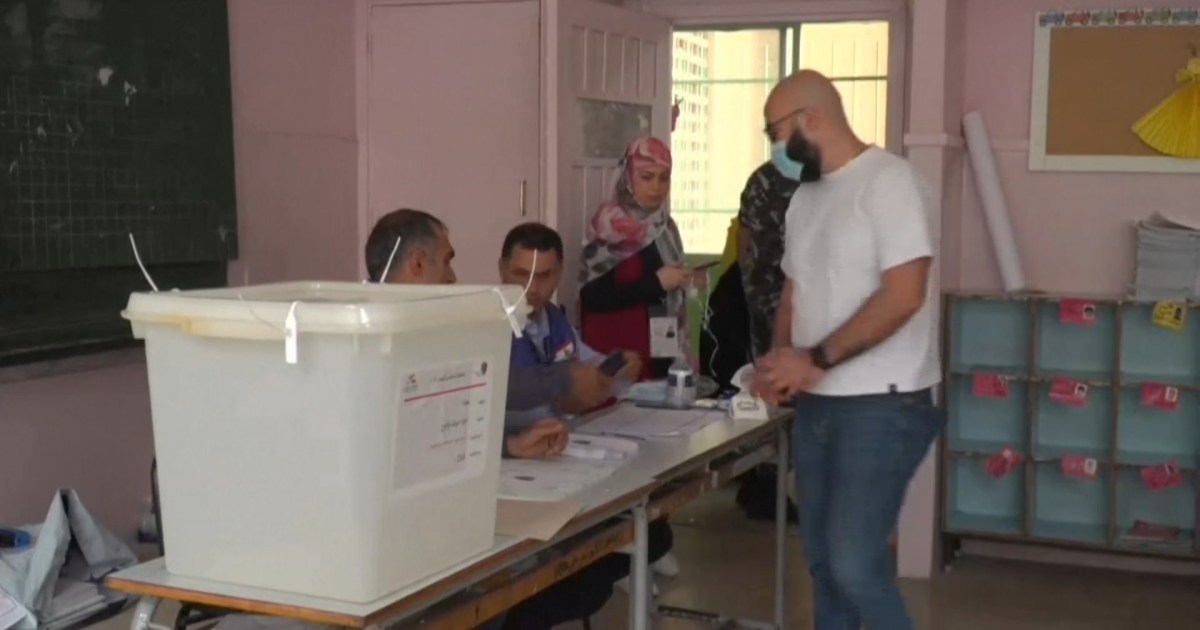Vote counting continues in the legislative elections in Lebanon, while the Ministry of Interior announced that the voter turnout reached 41%.
Agence France-Presse reported that the voter turnout is preliminary, which is low, and the final percentage is supposed to be announced later.
Al-Jazeera correspondent monitored the counting of votes in the "Matn District" in Mount Lebanon, where ballot boxes continue to arrive at the Palace of Justice in El-Jadida.
The official body supervising the elections in Lebanon said that it had recorded violations resulting from a breach of the electoral silence by various media outlets, candidates and political parties.
These elections are the first after a series of crises that shook Lebanon during the past two years, including an economic collapse, unprecedented popular protests against the authority, and a catastrophic explosion in Beirut.
The polls closed at seven in the evening yesterday, Sunday, with the exception of a number of centers that remained open until all the voters inside cast their votes.
The number of candidates for these elections is 719 candidates under 103 lists, including 56 lists in the name of change groups and civil society in the country, while the number of voters invited to participate in the elections is about 4 million.
Lebanese President Michel Aoun called on the Lebanese early yesterday to participate in the elections;
After casting his vote in the southern suburb of Beirut, he believed that a citizen cannot be impartial in a fundamental issue such as choosing the system of government, as he put it.
Hezbollah loses a seat in its stronghold
Reuters news agency quoted an opposition candidate and two Hezbollah officials as saying that preliminary results indicate that the electoral list backed by Hezbollah lost a seat in the party's stronghold in southern Lebanon to an independent candidate backed by the opposition.
Two Hezbollah officials said that Elias Jarada, an ophthalmologist, on the opposition-backed “Together for Change” list won an Orthodox Christian seat formerly held by Asaad Hardan of the Progressive Socialist Party, a close Hezbollah ally who has been an MP since.
Jerada told Reuters that his list had won enough votes to win one seat in a victory for the opposition in a region dominated by Hezbollah, but he did not confirm he had won a seat before the results were tallied in full.
As for the head of the Lebanese Forces' press office, he told Reuters in the early hours of Monday morning that the party had won at least 20 seats in the Lebanese parliamentary elections, an important victory for the Christian faction that strongly opposes Hezbollah.
Antoinette Geagea said that this number could rise further and that with allies from other sects and religious parties, the Lebanese Front could form the "largest parliamentary bloc" in the 128-seat parliament.
Absence of the Future Movement
The parliamentary elections in the country this year are witnessing a fundamental change represented in the absence of the Future Movement, which for three decades has been the mainstay of the Sunni political presence.
Months ago, former Prime Minister Saad Hariri announced the suspension of his political activity, a declaration that observers expect will have an impact on the political representation of the Sunni community in the Lebanese scene during the next stage.
Despite the increase in the number of candidates opposing traditional parties compared to the 2018 elections, many do not count on a change in the political scene that would allow addressing major issues. The traditional parties that benefit from the sectarian structure and the deeply rooted quota system have not lost their popular bases that they mobilized during the weeks leading up to the elections.
The last elections of 2018 witnessed the Shiite Hezbollah and its allies - most notably the Free Patriotic Movement led by President Michel Aoun and the Amal Movement headed by Parliament Speaker Nabih Berri - obtaining 71 seats out of 128, which is the total number of seats in the Lebanese Parliament.

